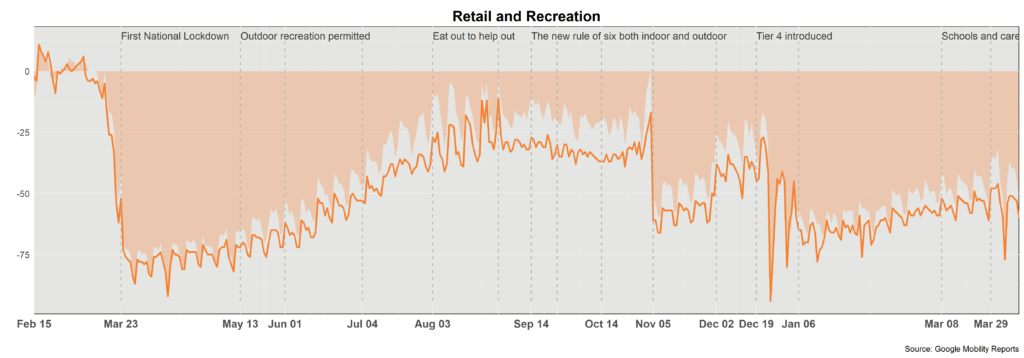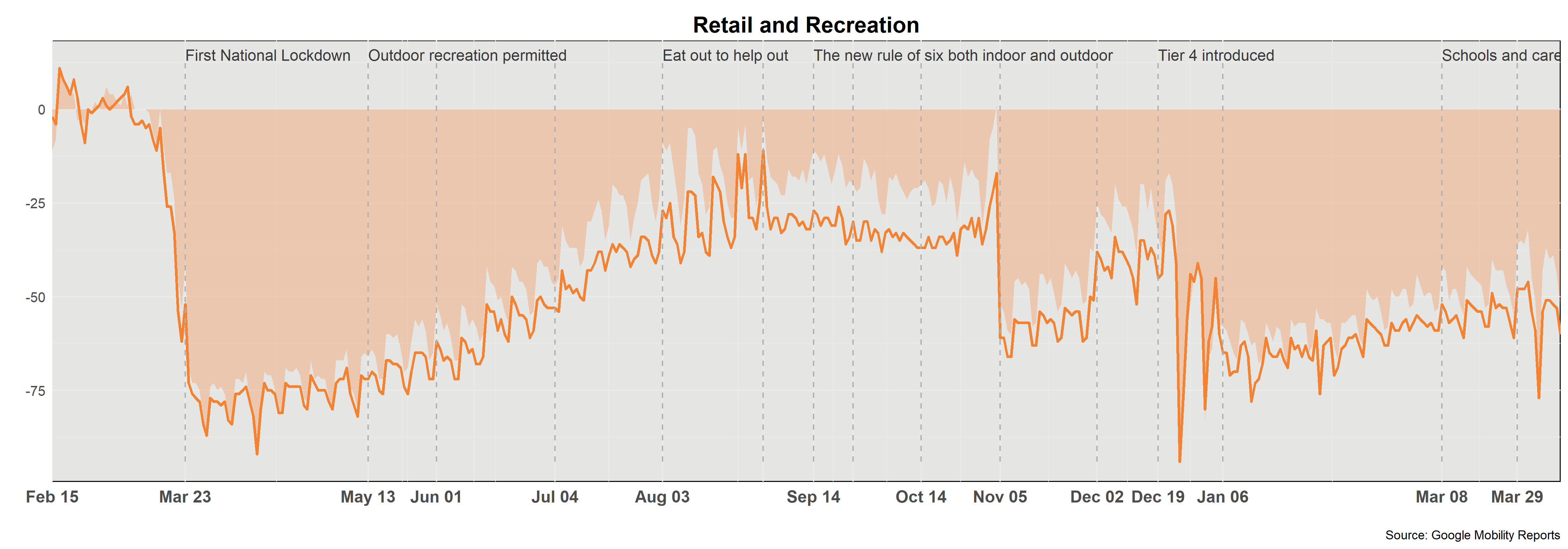
When the COVID-19 pandemic struck, already strained Local Authority resources were stretched even further, with infection and transmission of the virus exacerbating existing social inequalities.
In order to support the response of local authorities, groups and stakeholders to COVID-19, the Local Data Spaces (LDS) project was set up – a collaboration between the Consumer Data Research Centre (CDRC), the Joint Biosecurity Centre (JBC), the Office for National Statistics (ONS) and ADR UK.
What did the project involve?
During the six-month project, our research team engaged with 25 local authorities to better understand local priorities, contexts and research needs. From the meetings with local stakeholders, the huge variation in resources available for research and analytical capacity became clear.
Two core research priorities were identified which focused on broader COVID-19 health impacts and inequalities, and economic vulnerability and recovery potential.
With local authorities working alongside the research team, we developed relevant and useful reports and helped fill evidence gaps at local levels. Using data from the ONS’s Secured Research Service (SRS), we generated a series of ten reports, specific to each local area, investigating themes including demographic and ethnic inequalities in COVID-19, excess mortality, economic vulnerabilities and human mobility.

What data was used?
The ONS’s Secured Research Service includes core national data products such as NHS Test and Trace, the COVID-19 Infection Survey, the Business Structure Dataset (BSD) registry and the Business Registry and Employment Survey (BRES). These data sources were supplemented where relevant with openly available datasets such as the ONS Population Estimates, Google Mobility Data, and CDRC open data products such as the CDRC Business Census, and Access to Healthy Assets and Hazards (AHAH).
How does this project help?
Apart from profoundly important data analysis, the reports provide a number of practical efficiencies with all of the processes required to prepare datasets already completed – vital if local authorities do not have the analytical resources or time to undertake the work themselves. The reports also allow access to high-quality datasets that they may not have access to otherwise.
Through the series of reports for each local authority, we sought to paint a picture of the impacts of the pandemic, and also provide regional and national level comparisons where possible to highlight the relative local level impact. Local authorities are now quickly and succinctly able to uncover the local impact COVID-19 has had across a range of health, human mobility and economic themes in their own regions.
All reports are available through the Geodata Packs service on https://data.cdrc.ac.uk.
For a more detailed research-focused explanation of this project, check out the LDS Data Story.
*The Local Data Spaces project has been nominated in the ONS Research Excellence Awards 2021 – results due in a couple of weeks, watch this space!*

